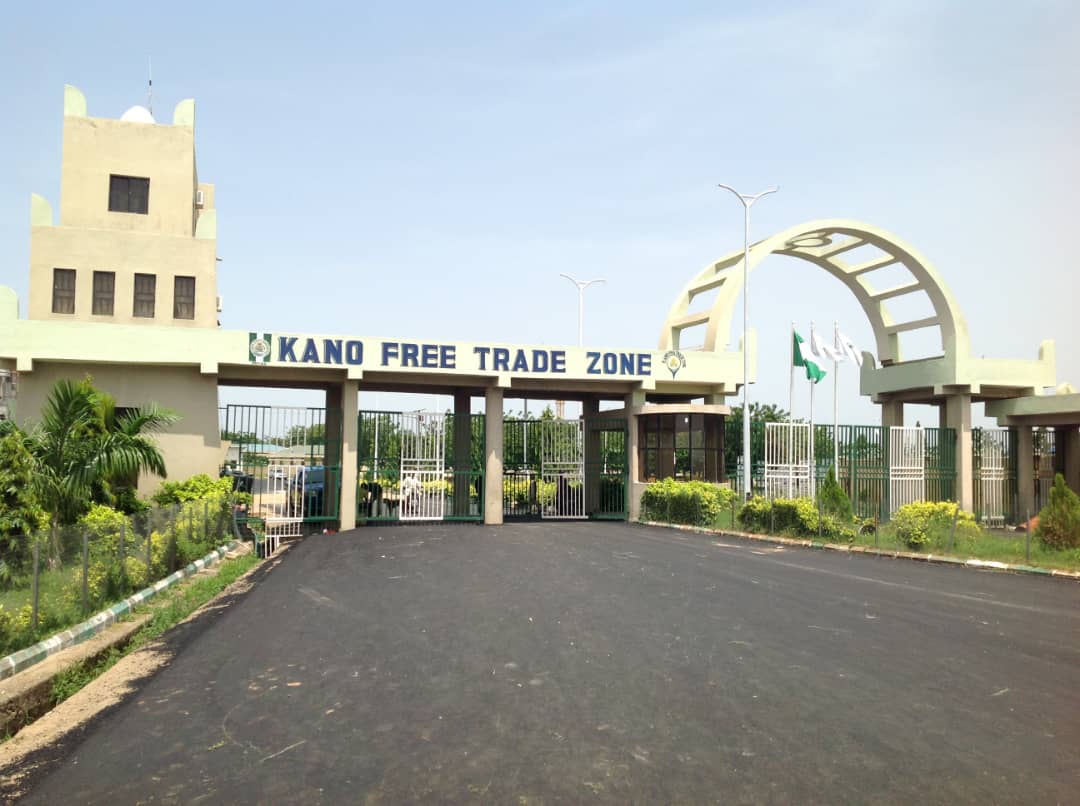Kano Free Zone, established under the Nigeria Export Processing Zones Act of 1992, initially operated as an Export Processing Zone starting in 1998. However, in 2001, it was officially converted into a Free Trade Zone following approval by the President-In-Council.
It is located in the Ungogo Local Government Area and is the second free trade zone owned by the Nigerian government. Specializing in warehousing, manufacturing, and logistics, it covers approximately 262 hectares and serves as a competitive environment for businesses.
Currently, 33 companies are registered in the zone, with 13 of them operational and utilizing 19 warehouses. These businesses contribute to the zone's economic activity and development. In 2010, the zone received a substantial grant of ₦5.2 billion from the federal government for development purposes, aimed at enhancing efficiency and infrastructure within the zone. Efforts have been made to attract Foreign Direct Investment and improve commercial activities within the zone through initiatives such as the establishment of a joint task force.

Why Invest in KFTZ?
The Kano Free Trade Zone (KFTZ) offers a range of incentives for businesses, including:
- Permission to Sell Goods Domestically: Companies can sell all goods in the domestic market without restrictions.
- Strategic Location: Proximity to other West African countries provides access to potential export markets.
- Favorable Import Duty Treatment: Import duties are based on raw material value, reducing costs.
- Large Consumer Market: Kano boasts Nigeria's largest consumer market, offering significant demand potential.
- Abundant Natural Resources: The area offers resources supporting various industries.
- Inclusion in AGOA: Participation in AGOA facilitates improved economic relations with the United States.
- Skilled and Unskilled Labor: The availability of skilled and unskilled labor at competitive rates provides businesses with a cost-effective workforce.
Furthermore, KFTZ offers additional benefits such as complete ownership and repatriation of profits, no requirement for import licenses or expatriate quotas, duty-free and tax-free import of specific goods, prohibition of strikes or lockouts for employees, rent-free construction period, centralized permit and license approvals, and a complete tax holiday for companies.
Establishing a company in Kano Free Trade Zone offers significant benefits for entrepreneurs and contributes to Nigeria's economic growth by fostering employment opportunities and boosting GDP.
How to Set Up an Enterprise in KFTZ
To set up an enterprise in Kano Free Trade Zone (KFTZ), follow these steps:
- Fill and Submit Application: Complete the form and submit it along with the required documents to KFTZ or NEPZA Headquarters.
- Obtain Operating License: Upon approval, receive an operating license, officially incorporating the business in Nigeria.
- Certificate of Capital Importation: Obtain this certificate from a bank within the free zone.
- Infrastructure Development: Build necessary infrastructure and submit required documents within three months of agreement execution.
- Commence Business: Once all formalities are completed, begin business operations.
Setting up in a free zone can be complex, so consider seeking assistance from Soha Asia Follow Up Services for tailored solutions and expertise.